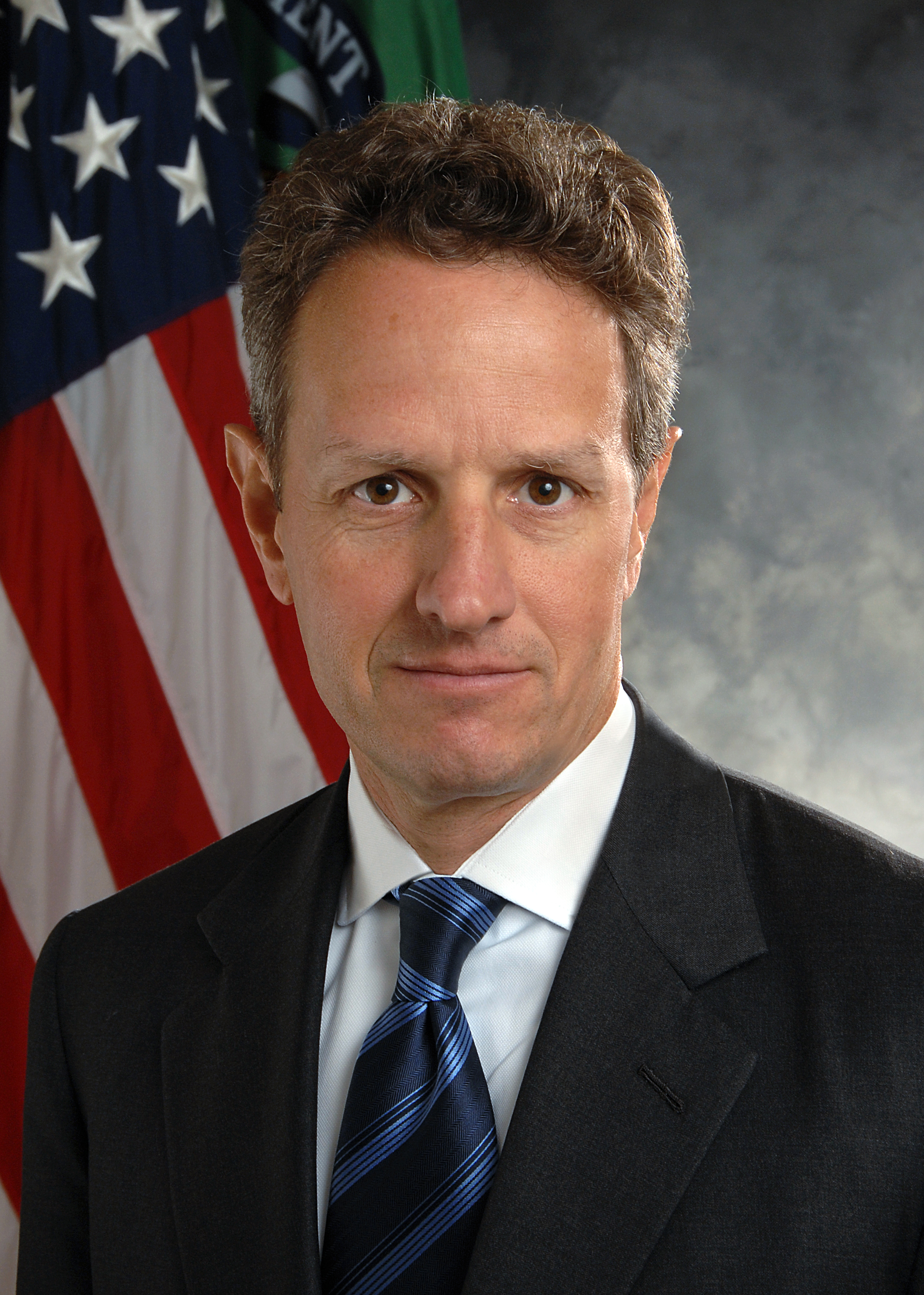Monetary policy itself cannot sensibly be directed at reducing imbalances.

"Timothy Franz Geithner" is an American economic policy maker and central banker who served as the 75th United States Secretary of the Treasury, under President of the United States/President Barack Obama, from 2009 to 2013. He was previously the president of the Federal Reserve Bank of New York from 2003 to 2009. He now serves as president of Warburg Pincus, a Wall Street private equity firm.
Geithner's position included a large role in directing the Federal Government's spending on the crisis, including allocation of $350 billion of funds from the Troubled Asset Relief Program enacted during the previous administration. At the end of his first year in office, he continued to deal with multiple high visibility issues, including administration efforts to restructure the regulation of the nation's financial system,{{cite news
/ title=Senators Skeptical of Financial Regulation Plan
/ url=http://www.nytimes.com/2009/06/19/business/19treasury.html
/ last=Stout
If you enjoy these quotes, be sure to check out other famous public servants! More Timothy Geithner on Wikipedia.The substantial uncertainty about the path of asset price movements going forward necessarily reduces the case for altering policy in advance of the move.
When policy-makers have already witnessed a significant move in asset values, and are confident in what that move means for the outlook, it should be prepared to adjust policy accordingly. The central bank must be responding to its assessment of what an already observed movement in asset prices will mean for output and inflation.
To do otherwise would run the risk that monetary policy would be too accommodative, pulling resources from the future in a way that would alter the trajectory for the growth of the capital stock, perhaps amplifying the imbalances, and compromising the price stability.
And if all else were equal ... monetary policy in the affected countries would have to adjust in response: policy would have to act to offset these effects in order to achieve the same impact on the future path of demand and inflation.
The plausible outcomes range from the gradual and benign to the more precipitous and damaging.
Copyright © 2024 Electric Goat Media. All Rights Reserved.